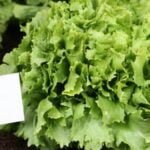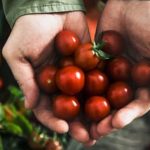Are you ready to take your vegetable gardening skills to the next level? Becoming a master vegetable gardener involves more than just planting and harvesting. It requires a deep understanding of the nuances of successful vegetable cultivation, as well as the ability to troubleshoot and problem-solve along the way.
A master vegetable gardener is someone who has honed their skills through years of experience and continuous learning. They have developed a keen eye for identifying plant health issues and pest infestations, as well as the knowledge to address these concerns effectively. Whether you’re a novice looking to improve your skills or an experienced gardener aiming to reach mastery, this guide will provide you with valuable insights and techniques for becoming a master vegetable gardener.
In this article, we will delve into the qualities and skills that define a master vegetable gardener, explore the essential tools and equipment needed for successful vegetable gardening, discuss how to select the right location for your garden, and provide tips for choosing the best vegetables to grow based on your region and climate.
We will also cover soil preparation, fertilization techniques, pest and disease management strategies, tips for successful harvest and storage of homegrown vegetables, advanced techniques for mastering the art of vegetable gardening, and resources for those looking to become certified master vegetable gardeners.
Whether you’re starting from scratch or seeking to refine your existing knowledge, this comprehensive guide will help you elevate your vegetable gardening abilities.
Qualities and Skills of a Master Vegetable Gardener
Becoming a master vegetable gardener requires a combination of qualities and skills that go beyond just knowing how to plant and care for vegetables. It takes dedication, patience, and a willingness to continuously learn and improve. Here are some essential qualities and skills that every aspiring master vegetable gardener should possess:
1. Passion for gardening: A true master vegetable gardener is passionate about growing their own food and is dedicated to the process.
2. Patience: Vegetable gardening requires patience as it takes time for seeds to sprout, plants to grow, and vegetables to ripen. A master vegetable gardener understands the need for patience in this process.
3. Knowledge of plants and gardening techniques: It is essential for a master vegetable gardener to have a good understanding of different types of vegetables, their growth habits, and the best practices for planting and caring for them.
4. Problem-solving skills: From dealing with pests and diseases to managing soil fertility, a master vegetable gardener must be able to troubleshoot problems that arise in their garden.
5. Continuous learning: The world of gardening is constantly evolving, with new techniques and information becoming available all the time. A master vegetable gardener is committed to lifelong learning and staying updated on the latest trends in vegetable gardening.
By developing these qualities and skills, aspiring gardeners can work towards becoming a certified master vegetable gardener, equipped with the knowledge and expertise needed to grow bountiful harvests year after year.
Essential Tools and Equipment for Successful Vegetable Gardening
When it comes to successful vegetable gardening, having the right tools and equipment is essential. Here are some of the must-have items for any aspiring master vegetable gardener:
- Hand Trowel: A hand trowel is perfect for digging small holes for planting seeds or seedlings, as well as for transplanting young plants.
- Garden Hoe: A garden hoe is useful for breaking up soil and removing weeds, making it an essential tool for maintaining a healthy garden.
- Pruning Shears: Pruning shears are necessary for trimming back overgrown plants, harvesting vegetables, and deadheading flowers in your vegetable garden.
- Garden Hose or Watering Can: Proper hydration is vital to the success of a vegetable garden, so having a reliable watering system is crucial. Whether you opt for a garden hose or a watering can, make sure you can easily reach all areas of your garden with water.
In addition to these basic tools, there are certain pieces of equipment that can make the gardening process more efficient and enjoyable. Some of these items include:
- Garden Gloves: Protect your hands from thorns, splinters, and other hazards in the garden with a durable pair of gloves.
- Garden Cart or Wheelbarrow: This makes transporting heavy bags of soil, mulch, or harvested vegetables much easier.
- Moisture Meter: A moisture meter helps you accurately determine when your plants need water by measuring the level of moisture in the soil.
- Tomato Cages or Trellises: For vining vegetables like tomatoes and cucumbers, having supports such as cages or trellises will help keep them off the ground and promote better air circulation in the garden.
By investing in high-quality tools and equipment, you can set yourself up for success as a master vegetable gardener. These items will not only make your gardening tasks easier but will also contribute to healthier and more abundant harvests from your vegetable garden.
Selecting the Right Location for a Vegetable Garden
Choosing the right location for your vegetable garden is crucial to its success. A master vegetable gardener understands the importance of finding a spot that receives plenty of sunlight, has good drainage, and is easily accessible for maintenance. When looking for a location, consider the amount of sunlight the area receives throughout the day. Most vegetables require at least 6-8 hours of direct sunlight to thrive, so it’s essential to select a spot with adequate sun exposure.
In addition to sunlight, it’s important to choose a location with good soil drainage. Plants will struggle to grow in soil that is constantly waterlogged, so it’s best to avoid low-lying areas or spots where water tends to pool after rainfall.
The ideal soil for vegetable gardening is well-drained, rich in organic matter, and slightly acidic. A master vegetable gardener knows how to assess their soil quality and make necessary amendments to create a healthy growing environment for their plants.
Accessibility is another key factor when selecting the right location for your vegetable garden. As a master vegetable gardener, you’ll want easy access to your garden for regular maintenance tasks such as watering, weeding, and harvesting.
Choosing a spot that is convenient to reach from your home will make it easier to stay on top of these essential gardening chores. Additionally, having your garden near a water source can save you time and effort when it comes to watering your plants regularly.
By carefully considering these factors when choosing the location for your vegetable garden, you’ll be on your way to becoming a successful master vegetable gardener. Paying attention to sunlight exposure, soil drainage, and accessibility will set the stage for a thriving garden filled with an abundance of fresh, homegrown vegetables.
Choosing the Best Vegetables to Grow for Your Region and Climate
When it comes to becoming a master vegetable gardener, one of the most important considerations is choosing the best vegetables to grow for your specific region and climate. Different vegetables thrive in different conditions, so it’s essential to do some research and planning before you start planting.
Understanding Your Climate and Growing Season
Before selecting which vegetables to grow, it’s important to understand your local climate and growing season. Some vegetables, such as tomatoes and peppers, require a longer growing season with plenty of warmth, while others, like lettuce and spinach, prefer cooler temperatures. Researching your region’s average last frost date and first frost date will help you determine the length of your growing season.
Choosing Vegetables Suited to Your Region
Once you have a good understanding of your region’s climate and growing season, you can begin selecting vegetables that are well-suited to those conditions. For example, if you live in a hot, arid climate, you may want to focus on heat-tolerant vegetables such as okra, eggplant, and sweet potatoes. On the other hand, if you live in a cooler, more temperate climate, crops like broccoli, carrots, and peas may be better choices.
Considering Soil Conditions
In addition to climate considerations, it’s also important to consider your soil conditions when choosing which vegetables to grow. Some plants thrive in well-draining sandy soil, while others prefer rich loamy soil. Conducting a soil test can provide valuable information about the pH level and nutrient content of your soil, allowing you to make informed decisions about which vegetables will perform best in your garden.
By carefully selecting the best vegetables for your region and climate and considering factors such as growing season and soil conditions, you can set yourself up for success as a master vegetable gardener. Each region has its own unique set of challenges and opportunities when it comes to vegetable gardening; learning how to work with these factors is an essential step toward becoming a successful master vegetable gardener.
Soil Preparation and Fertilization for a Thriving Vegetable Garden
Soil preparation and fertilization are crucial steps in achieving a successful vegetable garden. A master vegetable gardener understands the importance of having healthy, nutrient-rich soil to support the growth of their crops. Before planting, it is essential to test the soil to determine its pH levels and nutrient content. This will help you understand what amendments or fertilizers are needed to create an optimal growing environment for your vegetables.
One key aspect of soil preparation is ensuring proper drainage. Vegetable plants require well-draining soil to prevent waterlogged roots, which can lead to rot and disease. Incorporating organic matter, such as compost or aged manure, into the soil can improve its structure and drainage capabilities. This also enhances the soil’s ability to retain moisture and nutrients, promoting healthy plant growth throughout the growing season.
In addition to soil preparation, fertilization plays a significant role in maintaining a thriving vegetable garden. Master vegetable gardeners are knowledgeable about different types of fertilizers – organic and synthetic – and understand how they affect plant growth.
They also know when and how much fertilizer to apply based on their specific crop’s needs. By providing the right nutrients at the right time, master vegetable gardeners can ensure that their plants have everything they need to thrive and produce an abundant harvest.
Overall, a master vegetable gardener recognizes that proper soil preparation and fertilization are foundational elements of successful vegetable gardening. By investing time and effort into these practices, they set themselves up for a bountiful harvest and long-term garden success. With the knowledge and skills acquired through experience or training programs, aspiring gardeners can work towards becoming masters in this artful craft.
Pest and Disease Management in Vegetable Gardening
The Importance of Pest and Disease Management
Pest and disease management is a crucial aspect of vegetable gardening, as it can significantly impact the health and yield of your plants. Without proper management, pests and diseases can quickly spread throughout your garden, causing damage and potentially ruining your harvest. As a master vegetable gardener, it is essential to be proactive in preventing and addressing these challenges to ensure the success of your garden.
Organic Pest and Disease Control Methods
One approach to pest and disease management is through organic methods, which are not only better for the environment but also for the health of your vegetables. This can include using natural predators, such as ladybugs or praying mantises, to control pest populations.
Additionally, employing companion planting techniques can help deter pests by creating habitats that attract beneficial insects or repel harmful ones. For disease prevention, utilizing crop rotation and practicing good garden hygiene can minimize the risk of infections spreading.
Integrated Pest Management (IPM)
Integrated Pest Management (IPM) is an effective strategy that combines various techniques to manage pests and diseases in a sustainable manner. This holistic approach involves monitoring the garden regularly to assess pest populations, using cultural practices like proper watering and fertilization to promote plant health, implementing biological controls such as introducing natural enemies of pests, utilizing mechanical methods like handpicking or traps, and resorting to chemical controls only as a last resort.
As a master vegetable gardener, understanding and implementing IPM techniques can lead to healthier plants and a more bountiful harvest.
Tips for Successful Harvest and Storage of Homegrown Vegetables
Growing your own vegetables can be a rewarding experience, but it’s important to know the best practices for harvesting and storing your homegrown produce. A master vegetable gardener understands the importance of proper timing and handling when it comes to harvesting, as well as the techniques for ensuring that your vegetables stay fresh for as long as possible.
When it comes to harvesting your vegetables, timing is crucial. You should harvest your vegetables when they are at their peak ripeness for the best flavor and nutritional value. Be sure to use sharp, clean tools to prevent damage to the plant and produce. For example, tomatoes should be harvested when they are fully colored but still firm, while leafy greens like lettuce should be harvested before they bolt and become bitter.
Once you’ve harvested your vegetables, proper storage is key to extending their shelf life. Different vegetables require different methods of storage – some do best in the refrigerator, while others can be stored at room temperature. For example, root vegetables like carrots and potatoes should be stored in a cool, dark place with good ventilation, while delicate herbs like basil and parsley can be stored in water on the countertop.
Properly harvested and stored homegrown vegetables can provide you with healthy and delicious produce for weeks or even months after they are picked. A master vegetable gardener takes pride in being able to enjoy the fruits of their labor long after they have been harvested. With these tips in mind, you’ll be well on your way to becoming a successful home gardener.
| Vegetable | Storage Method |
|---|---|
| Carrots/Potatoes | Cool, dark place with good ventilation |
| Basil/Parsley | Stored in water on the countertop |
| Lettuce | Refrigerator crisper drawer |
Advanced Techniques and Strategies for Becoming a Master Vegetable Gardener
Becoming a master vegetable gardener requires more than just basic knowledge and skills. It involves mastering advanced techniques and strategies to maximize the yield and quality of your homegrown vegetables. By continuously learning and implementing new methods, you can take your vegetable gardening to the next level.
One advanced technique for becoming a master vegetable gardener is companion planting. This method involves planting different crops together to naturally enhance growth, repel pests, and improve flavor. For example, planting basil near tomatoes can help improve the flavor of the tomatoes and deter pests. Understanding which plants complement each other can significantly improve the overall health and productivity of your garden.
Another strategy for aspiring master vegetable gardeners is succession planting. This involves sowing seeds or transplanting seedlings at intervals to ensure a continuous harvest throughout the growing season. By staggering plantings, you can prevent gluts of produce while also making the most efficient use of your garden space.
Furthermore, implementing water conservation techniques such as drip irrigation or mulching can help conserve water while keeping your vegetable garden adequately hydrated. Mastering these advanced techniques not only improves the sustainability of your vegetable garden but also contributes to higher yields and better overall plant health.
| Advanced Technique | Benefit |
|---|---|
| Companion Planting | Naturally enhance growth, repel pests, and improve flavor |
| Succession Planting | Ensure a continuous harvest throughout the growing season |
| Water Conservation Techniques | Conserve water while keeping your vegetable garden adequately hydrated |
Resources and Courses for Those Looking to Become a Certified Master Vegetable Gardener
Becoming a master vegetable gardener requires dedication, knowledge, and skill. With the right resources and courses, anyone can take their vegetable gardening to the next level. Whether you are a novice looking to improve your skills or an experienced gardener aiming for certification, there are numerous options available to help you achieve your goals.
One essential step in the journey to becoming a master vegetable gardener is to seek out reputable resources and courses. There are many online and in-person programs that offer in-depth knowledge on topics such as soil preparation, pest management, plant selection, and advanced gardening techniques. By enrolling in these programs, aspiring master vegetable gardeners can gain valuable insights and access to expert guidance.
Furthermore, obtaining certification as a master vegetable gardener can open up new opportunities for networking and professional growth. Certified individuals may have access to exclusive job opportunities, community events, or even teaching positions within the gardening industry.
The recognition of being a certified master vegetable gardener can also serve as an assurance of one’s expertise and commitment to excellence in the field. With dedication and the right resources at hand, anyone can aspire to become a successful master vegetable gardener.
Frequently Asked Questions
What Makes You a Master Gardener?
I am a Master Gardener because I have completed an extensive training program that has equipped me with in-depth knowledge and expertise in gardening techniques, plant care, and pest management. I have also committed to volunteering in my community to share my knowledge with others.
What Is a Master Gardener?
A Master Gardener is a gardening enthusiast who has undergone specialized training provided by state Cooperative Extension Services. They are knowledgeable about various aspects of gardening, including soil management, plant selection, and pest control. Master Gardeners also volunteer their time to educate and assist others in their communities.
Can You Put Master Gardener on Your Resume?
Yes, you can definitely put Master Gardener on your resume. Completing the Master Gardener program demonstrates a high level of dedication to gardening and the acquisition of specialized skills and knowledge. It also highlights your commitment to volunteer work and community involvement, which can be impressive to potential employers or organizations in the horticultural field.

If you’re looking to get into vegetable gardening, or are just looking for some tips on how to make your current garden better, then you’ve come to the right place! My name is Ethel and I have been gardening for years. In this blog, I’m going to share with you some of my best tips on how to create a successful vegetable garden.





